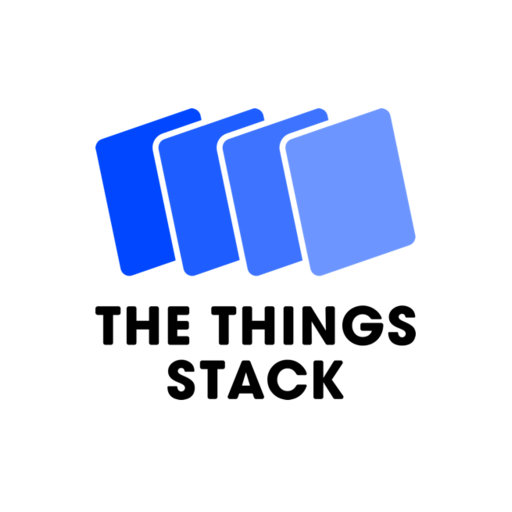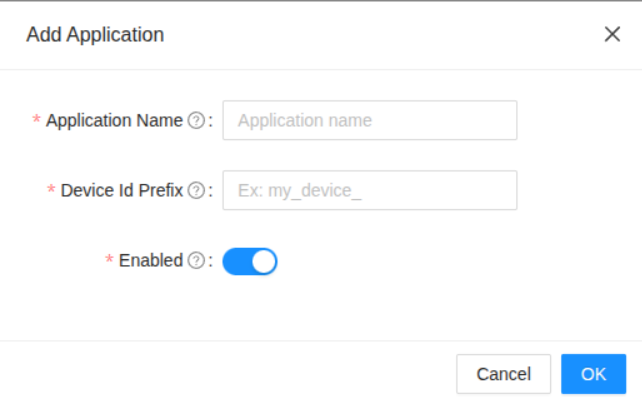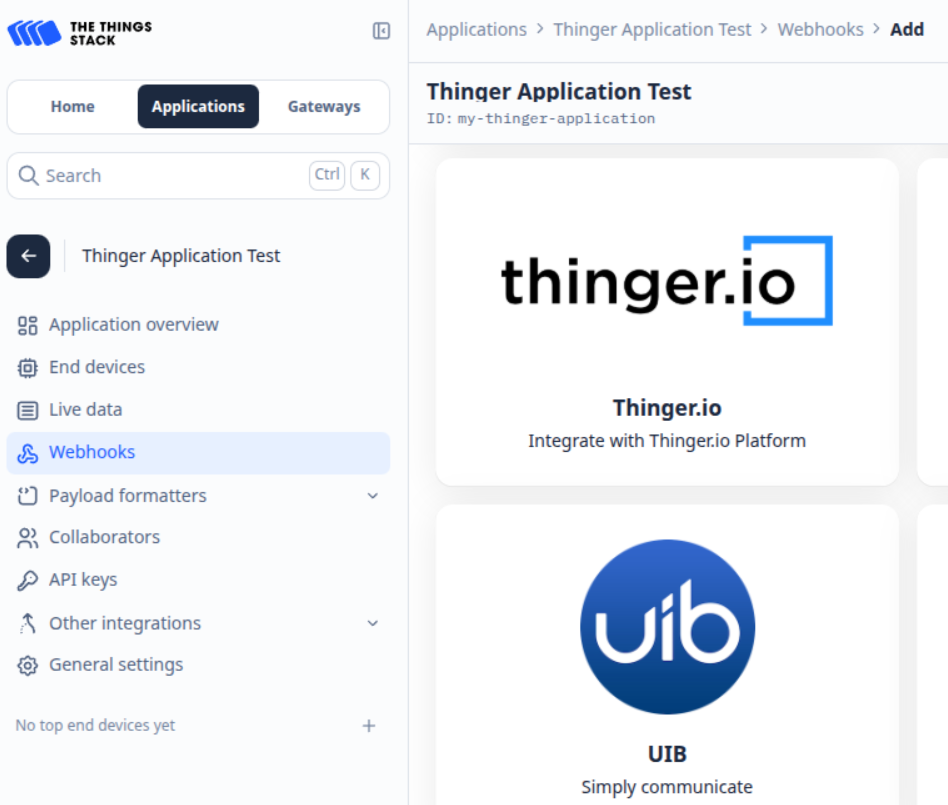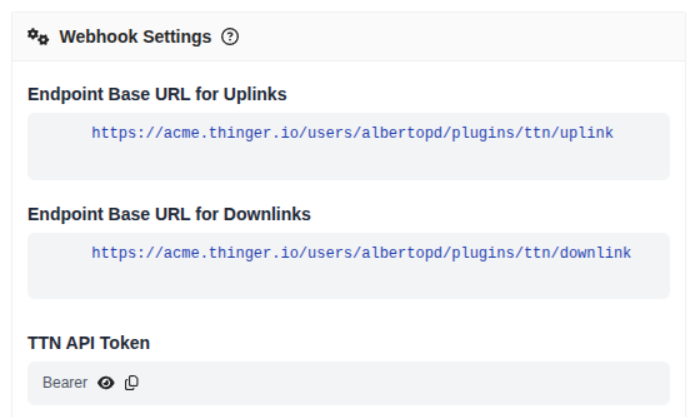TTN Stack
The Things Network (TTN) is an open, community‑driven LoRaWAN® network that simplifies the deployment of large‑scale IoT solutions across the globe.
From Thinger.io we aim to provide TTN users with seamless integration tools for storing, analysing and visualising device data.
This plugin brings TTN traffic into Thinger.io through the Products feature, enabling automatic provisioning of devices and data buckets, together with fully customisable uplink and downlink processing logic.
Warning
Please note that implementations made with versions higher than 2.0.0 of this plugin are not compatible with previous implementations.
Getting Started
Prerequisite
Devices within the selected TTN Application must be homogeneous—same type and model—so that autoprovision can assign the correct product template.
- Install the plugin inside your Thinger.io account.
See the guide “How to install a plugin” on the Marketplace if you are not familiar with the process.
Plugin Configuration
Open the plugin settings page. In the Applications table click Add + and fill in:
| Field | Description |
|---|---|
| Application Name | Must match exactly the Application ID defined in the TTN Console. The plugin uses this value to route outgoing requests to the correct TTN application. |
| Device ID Prefix | Prefix used when generating the device identifier; the Device EUI is appended automatically. Required for autoprovision. |
Keep this page open—you will need the Webhook URL and the TTN TOKEN generated by the plugin in the next step.
TTN Webhook Configuration
- Log in to the TTN Console and select the target Application.
- Navigate to Integrations → Webhooks and click Add Webhooks.
- Choose Thinger.io Template and complete the form with the values shown in your plugin:
| Template Field | Value |
|---|---|
| Webhook ID | Your prefered webhook id |
| Thinger.io instance | Your thinger.io instance domain e.g. acme.thinger.io or console.thinger.io |
| Thinger.io user | Your thinger.io username |
| Authoritation Header | Your thinger.io TTN API TOKEN |
| Plugin Endpoint | Plugin endpoint (leave default value if using this plugin) |
Tip You can find your TTN API TOKEN in the plugin settings page, under the TTN API TOKEN field, just click the "copy" button and paste it into the Authoritation Header field in the TTN Console.
After saving, uplink traffic will appear in the plugin Logs panel.
At this point the devices may still be unrecognised; autoprovision occurs once a matching Device Template is installed or created.
Currently only device uplinks and downlink confirmations are handled. Gateway status messages are ignored.
More details on Webhooks can be found in the The Things Stack documentation.
Device Templates
Device templates define:
- The expected data structure for an specific thinger product
- Uplink / downlink processing scripts
- Default dashboards, device properties and data buckets
Install a Device Template
Search the Marketplace for a template that matches your device model. If none exists, you can create your own template. Notice that, in Thinger.io, a Product is a template that defines the structure and behaviour of a device and can also be installed as a plugin.
Important
Ensure the template autoprovision prefix matches the Device ID Prefix configured in the plugin.
TTN Documentation
For more information about The Things Network and The Things Stack, please refer to the official documentation.
License
This plugin is released under the MIT License:
Copyright © Thinger.io
Permission is hereby granted, free of charge, to any person obtaining a copy
of this software and associated documentation files (the “Software”), to deal
in the Software without restriction, including without limitation the rights
to use, copy, modify, merge, publish, distribute, sublicense, and/or sell
copies of the Software, and to permit persons to whom the Software is
furnished to do so, subject to the following conditions:
The above copyright notice and this permission notice shall be included in
all copies or substantial portions of the Software.
THE SOFTWARE IS PROVIDED “AS IS”, WITHOUT WARRANTY OF ANY KIND, EXPRESS OR
IMPLIED, INCLUDING BUT NOT LIMITED TO THE WARRANTIES OF MERCHANTABILITY,
FITNESS FOR A PARTICULAR PURPOSE AND NONINFRINGEMENT. IN NO EVENT SHALL THE
AUTHORS OR COPYRIGHT HOLDERS BE LIABLE FOR ANY CLAIM, DAMAGES OR OTHER
LIABILITY, WHETHER IN AN ACTION OF CONTRACT, TORT OR OTHERWISE, ARISING FROM,
OUT OF OR IN CONNECTION WITH THE SOFTWARE OR THE USE OR OTHER DEALINGS IN
THE SOFTWARE.



